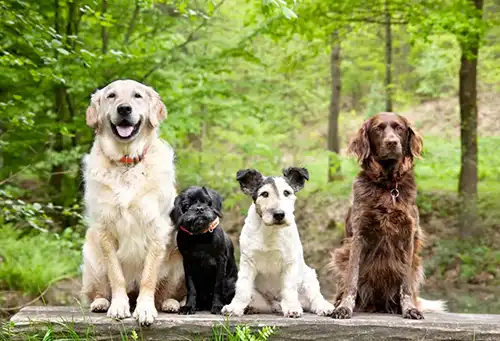For most animals, breeding is something that comes naturally. Occasionally, however, Mother Nature could use a helping hand. The Luv-N-Care Animal Hospital team is skilled and experienced in pet reproductive medicine. Need help preserving and continuing that precious bloodline in your purebred pet? Want to ensure that things go right the first time, and everything goes smoothly from conception through birth? We can help!
From comprehensive pre-pregnancy exams and reproduction evaluations to troubleshooting infertility issues and pregnancy monitoring, we’ll work with you to determine the best course of action to improve the likelihood of your pet successfully breeding.
At Luv-N-Care Animal Hospital, we utilize state-of-the-art tools and techniques, including digital radiography and ultrasound as well as hormone testing with progesterone monitoring to time breeding as well as elective C-Sections as needed.
Our in-depth reproductive services include, but are not limited to:
- Basic OFA Certificates of the Hips, Elbows, Thyroid, and more
- Pre-breeding examinations
- Ovulation timing
- Progesterone testing
- Semen collection and evaluation
- Artificial insemination (surgical & non-surgical)
- Pregnancy testing and monitoring
- Cesarean deliveries
- Infertility evaluations
If you’ve been struggling with breeding your pet, don’t leave it up to chance. Increase your odds of success by working with one of the reproductive specialists at Luv-N-Care Animal Hospital today!
Helpful Links
- Orthopedic Foundation for Animals – ofa.org
Luv-N-Care Animal Hospital
1482 N Ronald Reagan Blvd
Longwood, FL 32750
t: 407-767-0606
Also serving Orlando, FL and surrounding areas.
Working Hours
Monday: 7:30am – 7:00pm
Tues-Thurs: 7:30am – 6:00pm
Friday: 7:30am – 7:00pm
Saturday: 8:00am – 3:00pm
Sunday: 9:00am – 4:00pm






!Social Media Icons